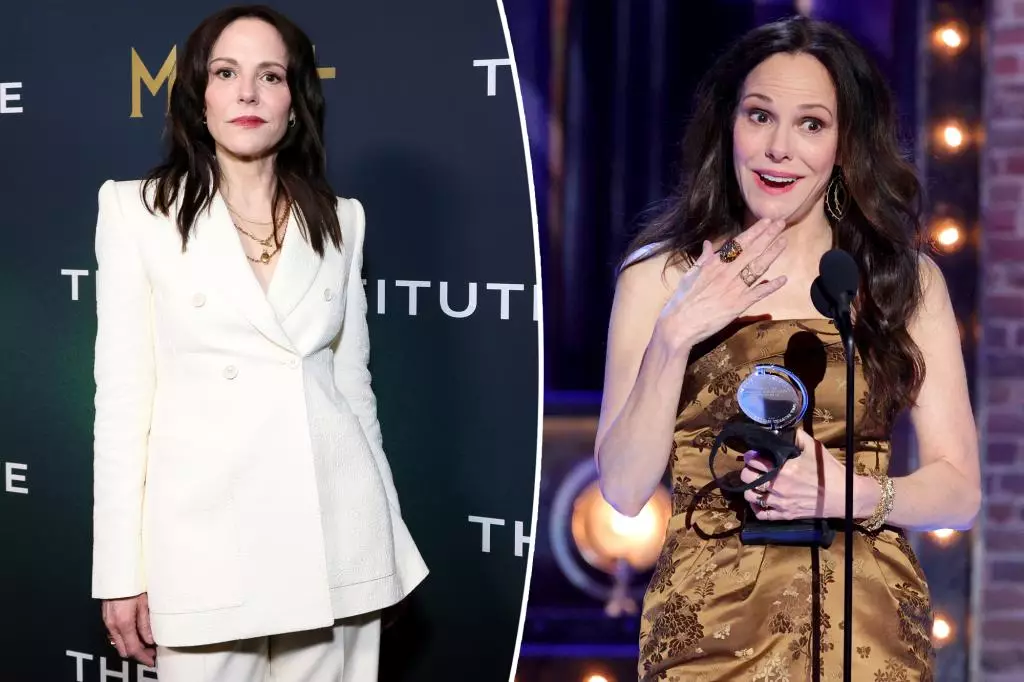In a world obsessed with self-promotion and constant validation, Mary-Louise Parker’s candid admission of never having visited her Wikipedia page demonstrates rare honesty. Instead of succumbing to the superficial allure of fame metrics, she chooses to preserve her mental clarity by avoiding the trap of constant scrutiny. Her stance underscores a profound understanding: obsession with external validation distorts self-perception and dilutes authentic happiness. Her approach invites a critical dialogue about how society venerates curated images rather than celebrating genuine human complexity. Parker’s refusal to indulge in the often-toxic culture of self-monitoring underscores the importance of maintaining internal integrity over external accolades.
The Power of Choosing Ignorance for Mental Clarity
Parker’s perspective aligns with a broader philosophy—sometimes, ignorance truly can be bliss. By not peering into the depths of her Wikipedia page, she shields herself from the distortions and inflated importance of public opinion. This stance raises an important question: is access to fame’s highlights always beneficial, or can it sometimes hinder personal growth? Her choice hints at a deep wisdom: by avoiding the echo chamber of online fame, she stays rooted in her authentic self. It’s a reminder that mental health often depends on what we choose to ignore, and how we exercise control over the narratives we allow into our minds.
Reflections on a Career Rich with Diversity
While Parker prefers to avoid the fame game, her career achievements paint a picture of resilience and versatility. From award-winning stage performances to memorable TV roles like Nancy Botwin, she exemplifies artistic integrity. Her ability to reinvent herself, from heartfelt dramas to supernatural thrillers, showcases her formidable talent and unwavering commitment to storytelling. Her recent role in “The Institute,” a Stephen King adaptation, reveals her willingness to explore darker, morally complex characters. Parker’s career defies easy categorization; instead, it reflects a desire to challenge herself and push creative boundaries, rather than chase fleeting fame.
The Morality of Power and Influence
Parker’s insights into her role as Ms. Sigby in “The Institute” add depth to her introspection. She perceives her character as unwaveringly committed, convinced she’s working for the greater good. Her commentary about the dangerous allure of moral certainty exposes her skepticism about absolute righteousness in any form of leadership or authority. This perspective is especially relevant in today’s polarized culture, where the tendency to view actions through a binary moral lens often leads to destructive consequences. Parker subtly emphasizes the importance of humility, implying that true wisdom lies in recognizing the potential for misguided conviction—even when one believes they’re doing the right thing.
From Fame to Authentic Living: A Model for Modern Individuals
Ultimately, Mary-Louise Parker’s refusal to indulge in her digital self-image promotes a more honest approach to life and success. Her perspective suggests that the most meaningful achievements stem from authenticity, not validation. In an era where social media elevates superficiality, her stance serves as a stark reminder: true fulfillment comes from internal validation and artistic integrity, not from societal approval. Her approach invites others to reconsider what truly matters—questioning whether the pursuit of external acknowledgment adds lasting value or merely cultivates fleeting validation. Parker exemplifies that living authentically often requires courage—an unwavering commitment to who you are beyond the glare of public scrutiny.

Leave a Reply